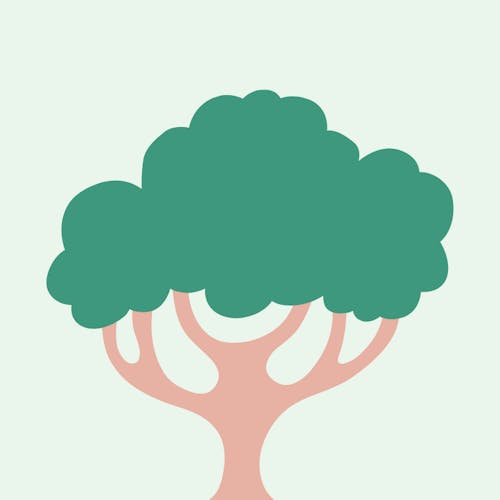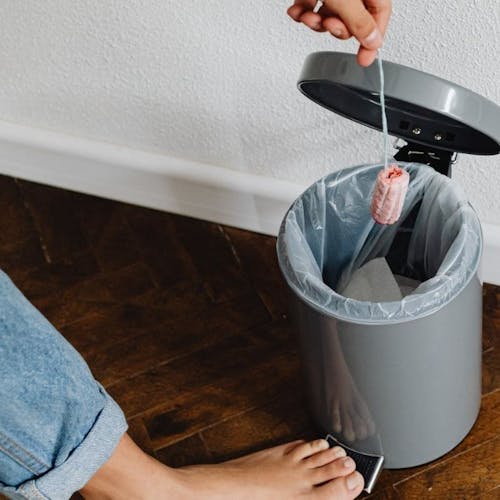This website uses cookies to enhance the user experience. By using Yoppie you are agreeing to our use of cookies.
Pesticides & Periods: The Hidden Health Impact
Written by Yoppie
19 Apr 2021
What are pesticides?
How could pesticides affect my body?
Should I be worried??
What are pesticides doing to the environment?
How to have a pesticide-free period
Pesticides are pretty important for food production around the world, but it’s safe to say they shouldn’t be anywhere near your vagina… right? Unfortunately, many of us could have been unknowingly coming into contact with these potentially hazardous chemicals through our sanitary products for years.
It’s important to note that for the most part, the traces of pesticides found in most sanitary products are minimal, and aren’t thought to cause any significant health dangers, but there are still a lot of questions about the safety and potential eco-implications. Here’s what you need to know...
What are pesticides?
A pesticide is a substance that kills, repels or controls certain plants or bugs that can ruin crops and other agricultural efforts. Whether to destroy weeds, control insect or rodent populations, or to prevent bacteria or mould, pesticides have been widely used for many years and people are typically exposed to a low level through their diet.
These chemicals are regulated to create limits of safe exposure, so for the most part it’s nothing to worry about, but as these substances have been linked to serious health concerns in the past, there is ongoing discussion about where the ‘safe exposure’ line in the sand should be drawn. Especially when studies have suggested that occupational exposure to pesticides (i.e. women working on farms) could have adverse effects on female reproduction.
How could pesticides affect my body?
You’re probably wondering how they’re connected to sanitary products - it’s all about the cotton production. Cotton is one of the main materials used in the making of tampons and sanitary towels, and this raw material is grown in a field just like the food we eat, so in some cases it needs to be treated in the same way - with pesticides. The problem comes when this same cotton is turned into a tampon that is inserted into an actual human vagina - yikes!
According to one study, women exposed to ‘probable hormonally active’ pesticides had a 60-100% increased chance of experiencing a longer cycle, missed period, or bleeding between periods, and in another study, higher blood levels of certain pesticides increased endometriosis risk by 30-70% in women aged 18 to 49. It’s important to note that the pesticides mentioned in this study were last used in the 1970s, but it can take many years for them to disappear from the environment, so researchers continue to study their effects.
In a more recent study published in 2019, researchers observed associations between tampon use and elevated levels of mercury and oxidative stress biomarkers in subjects. While the findings weren’t conclusive, they did show that tampons could be a largely overlooked source of exposure to these metals and chemicals.
Should I be worried??
According to the Pesticide Action Network, pesticides are considered to be a problem that can lead to a whole host of health concerns, but when it comes to tampons made with cotton, there just hasn’t been enough research carried out yet to come to a conclusion about the potentially dangerous effects on the people who use these products every month.
In short, should we be out protesting in the streets about the dangers of pesticides in our tampons? Probably not. But should there be more research into the potential long-term harm these chemicals could be causing? Abso-bloody-lutely.
What are pesticides doing to the environment?
Cotton covers only 2.4% of cultivated land around the world, but it uses a startling 6% of the world’s pesticides and 16% of insecticides, which is more than any other single major crop, and has damaging effects on the environment.
Cotton pesticides (and more so insecticides) are known to threaten soil and water quality, and biodiversity around the fields which can affect nearby rivers and lakes. Studies by the UK government actually show pesticide concentrations surpass those allowable for drinking water in some samples of river water. Sure, we’re not drinking it, but many animals will be.
How to have a pesticide-free period
The silver lining is that the cotton industry continues to improve year on year, with the impact of pesticides being taken more and more seriously. It is thought that cotton growers in the US make 50% fewer pesticide applications than the generation before them, so things are looking up.
If, however, you want to ensure a pesticide-free period right now, we have one word for you… organic! By switching to products that use organic cotton, you are not only avoiding the traces of pesticides that are likely found in many high street sanitary brands, you are also ensuring the sanitary waste that goes into landfill does not contribute any pesticides or hazardous chemicals that can negatively impact biodiversity and the environment.
Choose products that are free from bleach, pesticides and toxic chemicals, and opt for organic, unbleached, biodegradable instead (shameless plug: like every product in our period care and cycle support range)!
Got a question about pesticides? Shout out in our private Facebook group or drop us a note on Insta @itsyoppie. Don't forget that our personalised period box can get organic tampons, PMS supplements and more delivered easily and regularly through your letterbox with an all-organic ingredient promise, so you know you're staying free of those nasty chemical bits.
Section jump
Back to top
Subscribe To Our Newsletter
YOPPIE





© 2025 Yoppie is a registered trademark of Phlo Technologies Ltd.
Yoppie's supplements are not a substitute for a varied diet and healthy lifestyle and are not intended to diagnose, treat, or cure any disease. If you are pregnant, breastfeeding, have a medical condition or are under medical supervision, please consult with your doctor before taking any of our products.






